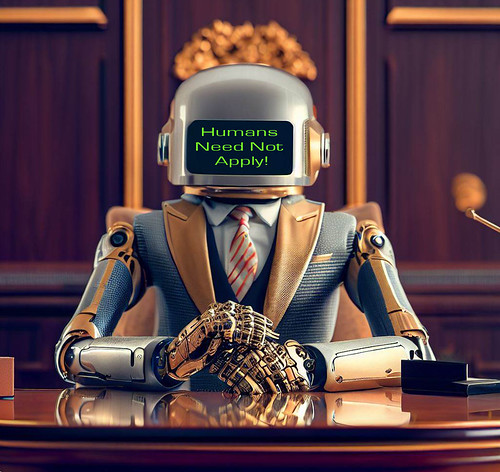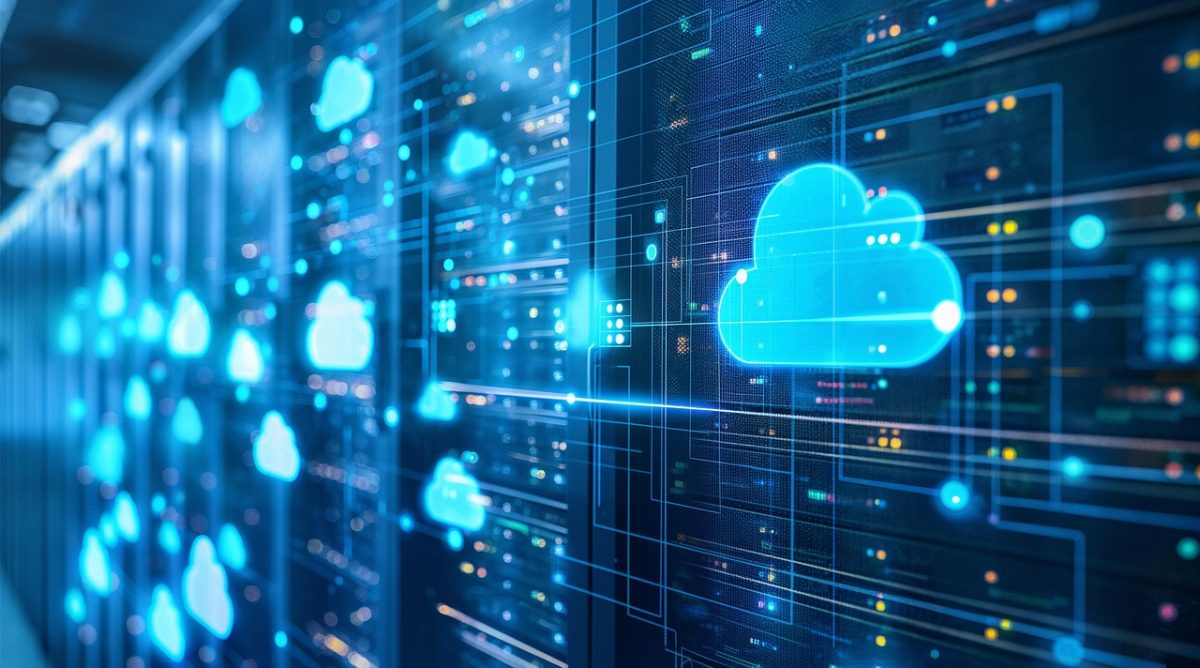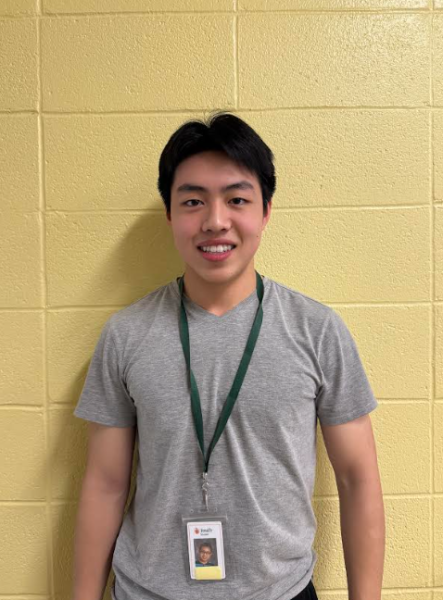
The arrival of new technology and artificial intelligence brings many benefits, such as increased access to information, task automation, and improvements across several industries, but there is the ever-looming possibility of robots and artificial intelligence eventually taking over our lives. While this scenario may not occur in our lifetime, society will face inevitable changes that may have negative consequences. One of these includes the way the future job market will be shaped by the arrival of artificial intelligence, which may replace current job opportunities by automating it.
Artificial intelligence, more commonly known as AI, has been a rising topic of debate filled with controversy in recent years. By definition, artificial intelligence is “the ability of a digital computer or computer-controlled robot to perform tasks commonly associated with intelligent beings,” according to Britannica. Restated more simply, the development of artificial intelligence allows computers, or “robots,” to obtain and utilize the skills that humans possess. Many researchers and scientists have applied artificial intelligence to develop tools aiding humans as virtual assistants (such as Alexa), data analysts, and more recently, creative writers or artists through tools such as ChatGPT. Many of these revolutionary technologies have been widely praised for advancing technology quicker than ever and reshaping the way humans interact with digital systems.
However, multiple dangers and risks have been identified with such advancements in artificial intelligence. Many people in the public worry that with advances in the AI world making progress quicker than ever before, the speed of technological progress may be too rapid for humans to catch onto. In other words, the dangers of AI outweigh the benefits if humans are not consciously aware of its pitfalls. According to an article from Forbes, some of these issues identified include lack of transparency (about AI’s decision-making), bias and discrimination, privacy and security concerns, and legal challenges. Other problems have come from specific programs developed by machine learning, such as copyright problems with Generative AI or privacy concerns about Deep Fakes.
Many renowned innovators in the modern world have also spoken out regarding AI’s dangers to further notify the public. Geoffrey Hinton, known as the “Godfather of AI,” famously swarmed the news in April and May of 2023 by warning the public of AI’s dangers, stating that “these things could get more intelligent than us and could decide to take over, and we need to worry now about how we prevent that [from] happening.” Hinton resigned from his high position at Google to “talk about the dangers of AI without considering how [it] impacts Google,” he wrote on X (Twitter). Other technological innovators have floated similar ideas. Elon Musk, famously known as the CEO of Tesla and SpaceX, warned that the consequences of AI going wrong are very severe, so “we have to be proactive rather than reactive,” he said during a meeting of tech CEOs and US Senators in 2023.
Regarding the future job market, there is a high risk of AI taking over certain jobs. “Experts say ChatGPT and related AI could threaten some jobs, particularly white-collar ones,” said Business Insider. Currently, the most threatened jobs by AI include tech jobs, media jobs, graphic designers, and customer service agents. Although tech jobs, such as coders and software engineers are still important, AI can handle large amounts of data better than humans and can create code quickly, leading to less demand for tech jobs. In addition, AI can disrupt the graphic design industry. Take DALL-E, for example, which is an AI-based software by OpenAI that can create realistic images from text prompts in a matter of seconds. Although these types of AI can be used to inspire designers and artists to create higher-quality work, they increase competition and could lead to a decrease in wages in the future. Finally, AI could also replace customer service agents, as seen by the emergence of robot-replied calls and customer support chatbots online.
Although AI will inevitably take over some jobs, it will also increase the demand for current jobs or create new ones. According to Nextford University, some jobs that will not be replaced by AI include teachers, lawyers, judges, surgeons, and psychologists. AI tools such as ChatGPT will help with education, but for now, it is not possible to have a fully digital teaching experience, which is why the demand for teaching will increase; in addition, the special teacher-student connection can not be replicated using AI. In addition, lawyers and judges have to make difficult decisions and much of that boils down to experience and human intuition, which AI simply does not have. Although AI is smart at processing information and data, if it gets involved in legal cases, there is the possibility of it making biased decisions through an algorithm. Similarly, in the case of surgeons and psychologists, AI can’t compete with the years of experience and background that these medical professionals have, especially when dealing with sensitive topics or life-death scenarios.
While the impacts above may seem far into the future, they are not that far off. “Across 45 economies, covering 673 million workers, 69 million new jobs are expected to be created and 83 million to be eliminated,” according to the Future of Jobs Report 2023 by the World Economic Forum. These changes are expected to happen within the next five years, and it is estimated that about a quarter of all current jobs will be affected. According to the same report, the largest growth in jobs will be in agriculture and education. Work skills that are quickly on the rise include creative and analytical thinking, technological skills, and management skills, which AI may not be able to do as well as humans. “We also find that almost half of an individual’s skills – 44% – will need to change on average across all jobs,” said the World Economic Forum. Workers must prioritize curiosity, leadership, social influence, and flexible thinking, which are valued in today’s job market.
Overall, AI can prove extremely useful in our society but there are certain downfalls to consider. First of all, there is the fear that AI will advance too fast for humans to keep up and change our lives permanently. In addition, there are questions about its decision-making, bias, and privacy and security concerns. Most importantly, AI can also automate certain jobs and affect the future job market. Specifically, white-collar and 9-5 desk jobs will be impacted the most within the shortest amount of time. While all jobs won’t be replaced, certain industries may eventually disappear and people must adjust their skills to fit job market demands. Therefore, it is best to stay alert of AI and take it to our advantage to enhance our education and improve our work efficiency.















































































































































